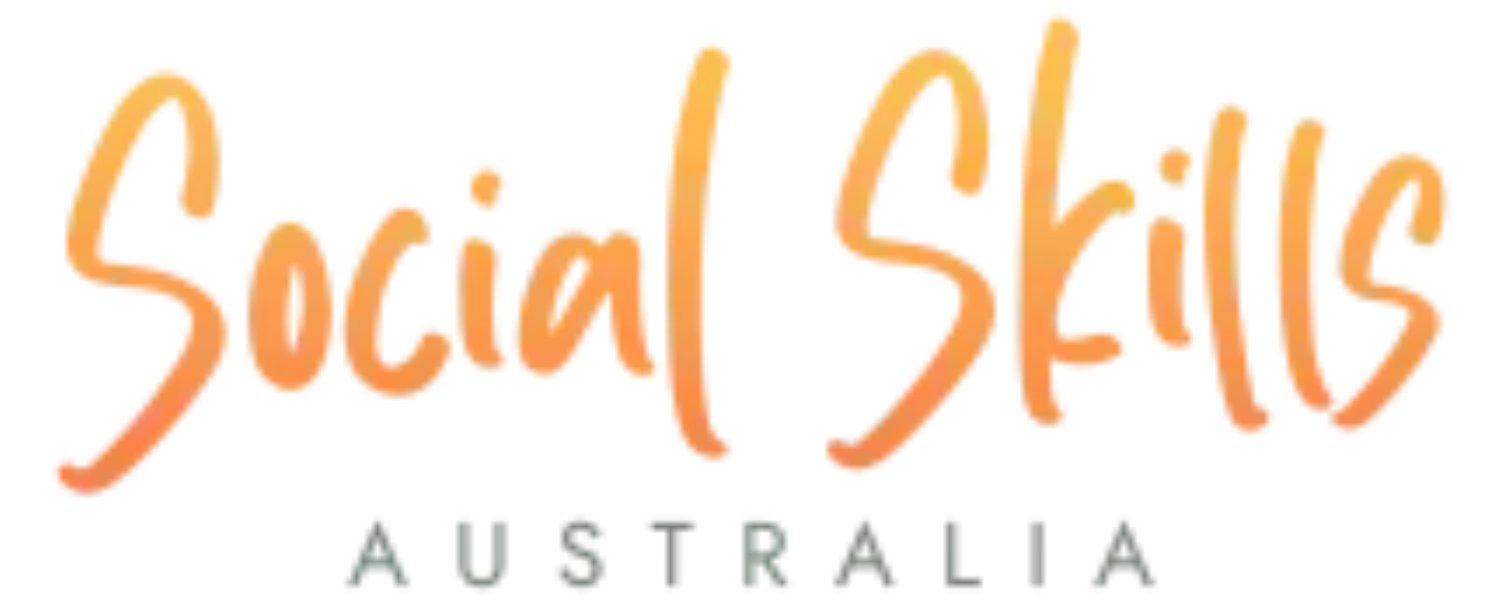Helping teens and young adults make and keep friends.
Our programs
View our upcoming programs
What participants say
Autism, anxiety and social challenges can make life hard for your teen, and families often need extra support. We are here to help!
Research shows improving social skills and having even just 1-2 close friendships:
✓ Increases self-esteem, confidence and independence
✓ Decreases the likelihood of depression and anxiety linked to loneliness
✓ Minimises the occurrence of bullying.
The PEERS® Program is a proven, internationally-acclaimed, research-based social skills course designed SPECIFICALLY for adolescents on the autism spectrum or with social challenges. It works!
We’re excited to work with you or your loved one to achieve family goals!
Hi, I'm Christine O'Leary, and I'm a Social Coach
I’m a fellow parent of adolescents with social challenges myself - and I’m here to help!
I help teens and young adults with autism, ADHD and other social challenges to make and keep friends and learn important social skills through relaxed and fun small group sessions, both online and in person.
Completed the UCLA Program for the Education and Enrichment of Relational Skills in the Jane and Terry Semel Institute for Neuroscience and Human Behaviour at the University of California, Los Angeles.
Certified PEERS® Provider
Specialised skills and advanced knowledge in the communications, media and creative industries.
Bachelor of Business Administration
GradDip Communication, Public Relations, Advertising, & Applied Communication
Communication & Public Relations Specialist
Specialising in supporting both individuals and organisations to communicate effectively with others. University-trained and post-graduate qualified communication professional passionate about helping people to communicate well.
Parenting Support & Consulting
What is PEERS®?
PEERS® is delivered over 16 weeks of 90-minute sessions, covering topics such as:
PEERS® teaches social skills through didactic lessons and role-play demonstrations, with students practising these skills during group behaviour rehearsal activities.
NOTE: The PEERS for Young Adults Program also includes Dating Etiquette.
PEERS® stands for Program for the Enrichment and Education of Relational Skills, an evidence-based social skills training program for adolescents and young adults with social challenges. Dr Elizabeth Laugeson developed it at the University of California in 2004.
✓ Developing and maintaining friendships
✓ Entering and exiting conversations
✓ Appropriate use of humour
✓ Being a good sport
✓ Changing a bad reputation
✓ Conversational skills
✓ Electronic communication
✓ Organising get-togethers
✓ Handling disagreements
✓ Handling teasing and bullying
Program Overview
For teens aged 13 - 17 years and adults aged 18+ years
Delivered over 16 weeks
90-minute skill development sessions for teens and young adults
90-minute coaching sessions for social coach (parent, family member, teacher or support worker)
Small class format (6-10 teens and young adults)
-
Week 1 | Introductions, Conversational Skills 1, Trading Information
Week 2 | Conversational Skills 2, Two-Way Conversations
Week 3 | Conversational Skills 3, Electronic Communication
Week 4 | Choosing Appropriate Friends
Week 5 | Appropriate Use of Humour
Week 6 | Starting and Joining Conversations
Week 7 | Exiting a Conversation
Week 8 | Get-Togethers
Week 9 | Good Sportsmanship
Week 10 | Handling Arguments and Disagreements
Week 11 | Changing a Reputation
Week 12 | Handling Teasing and Embarrassing Feedback
Week 13 | Handling Physical Bullying
Week 14 | Handling Cyberbullying
Week 15 | Handling Rumours and Gossip
Week 16 | Graduation
-
Week 1 | Introductions, Conversational Skills 1, Trading Information
Week 2 | Conversational Skills 2, Two-Way Conversations
Week 3 | Conversational Skills 3, Electronic Communication
Week 4 | Choosing Appropriate Friends
Week 5 | Appropriate Use of Humour
Week 6 | Starting and Joining Conversations
Week 7 | Exiting a Conversation
Week 8 | Get-Togethers
Week 9 | Dating Etiquette - Letting Someone Know You Like Them
Week 10 | Dating Etiquette - Asking Someone on a Date
Week 11 | Dating Etiquette - Going on Dates
Week 12 | Dating Etiquette - Dating Do's and Don'ts
Week 13 | Handling Disagreements
Week 14 | Handling Direct Bullying
Week 15 | Handling Indirect Bullying
Week 16 | Moving Forward and Graduation
-
90 MINUTE SESSIONS
A structured lesson on the week’s topic (using rules and steps)
Role-play of dos and don’ts - either live or using videos developed by UCLA
Practice new skills learnt
Social coaching and feedback
Practical exercises to complete at home during the week
Social coaching feedback at home during the week by the social coach (parent/carer or support worker)
-
There have been many studies conducted on the PEERS® Program. Below are links to some of the research:
Efficacy of PEERS® for Adolescents via Telehealth Delivery
A Randomised Controlled Trial to Examine the Effectiveness of the Dutch Version of PEERS®
Perceived and Observed Treatment Gains Following PEERS®: A Preliminary Study with Latinx Adolescents with ASD
Improving Social Anxiety and Social Responsiveness in Autism Spectrum Disorder through PEERS®
Social Skills training Using the Thai Version of UCLA PEERS® in Thai Adolescents with Autism Spectrum Disorder
New Approaches to Social Skills Training: Blended Group Interventions for Girls with Social Communication Difficulties
Improving Social Knowledge and Skills among Adolescents with Autism: Systematic Review and Meta-Analysis of UCLA PEERS® for Adolescents
Research Progress on the Effect of PEERS® on Social Skill Improvement among Adolescents with ADHD
Research on the Effect of Social PEERS® Training for Mothers and Children with Autism Spectrum Disorder in Shanghai
Development and Preliminary Testing of the Dutch Version of PEERS®
An Israeli RCT of PEERS®: Intervention Effectiveness and the Predictive Value of Parental Sensitivity
Implementation of PEERS® Social Skills Intervention in a University-Based Communication Sciences and Disorders Clinic
The full list of research publications on PEERS® is available on the UCLA website HERE.
FACE-TO-FACE | ONLINE
Social Skills Australia Programs
Location, Dates and Times
→ In-Person (Sunshine Coast location) & Virtual (Australia-wide) options are available.
→ After school/work & during the day (for homeschoolers), options are available.
→ All parent sessions (social coach training) are held in the evening via Zoom.
Enrolment in PEERS® is a simple three-step process.
Intake interviews
Book an informal, confidential 15-minute phone chat with me to assess your adolescent’s suitability for the program and to answer any questions you may have.
If you want to enrol, I will meet with you and your adolescent/young adult one-on-one (usually online) to make sure PEERS® is a good fit for your teen and ensure your teen feels comfortable with the program. This is to ensure the best possible outcome for your adolescent.
Enrolment Paperwork and Payment
You will then be sent the enrolment paperwork to complete and return, along with a link for payment.
A payment plan is available for non-NDIS participants.
Upon receipt of your completed enrolment paperwork and payment, your adolescent’s spot in the program is confirmed.
Welcome and Commencement
Before the first session, you and your adolescent will receive a welcome email including all the zoom links and materials.
Then each week, your adolescent/young adult will continue to be sent everything they need for each session.
Is PEERS® the right program for your adolescent or young adult?
PEERS® is right if they:
are aged between 13-17 years or 18-30 years
have social challenges
want to participate in the program and learn new skills
can commit to attending the sessions consistently
have a parent/family member/teacher/support worker who is willing to participate as their social coach.
Places are limited. Reach out NOW to secure your spot.
Who developed PEERS®?
Dr Elizabeth Laugeson developed PEERS® - an Associate Clinical Professor in the Department of Psychiatry and Biobehavioural Sciences at the UCLA (University of California) Semel Institute for Neuroscience and Human Behaviour.
More than x30 peer-reviewed studies demonstrate the efficacy of this course - with teens consistently showing improvement on every measure of social skills and social engagement - as well as reduced problem behaviours, related social difficulties and social anxiety.
The gains are maintained well after the course has ended - a finding attributed to the involvement of a social coach, which can be a parent, another family member, a teacher or a support worker.
For more information on PEERS®, check out this video by the Founder and Director of the UCLA PEERS® Clinic and the developer of PEERS®, Dr Elizabeth Laugeson.
NDIS
PEERS® & NDIS Participants
The PEERS® Program suits most NDIS Plans.
NDIS funding can be used if your family is self-managed or plan-managed.
NDIS Information:
NOTE: It is important to check your own individual funding options.
NDIS and Costs
The investment is $165 per week per family and includes:
✓ Intake interviews
✓ 90 min teen skill development session per week ($75 per individual per week)
✓ 90 min parent/support worker coaching session per week ($90 per family per week)
✓ Weekly handouts/practice at home materials
✓ PEERS® App
✓ Teen incentive prizes each week
✓ Support throughout the 16-week program
16-week program: $165 x 16 weeks
Total investment for the entire program (includes everything) = $2,640
A payment plan is available for non-NDIS participants.
Frequently Asked Questions
-
The PEERS® for Adolescents Program is designed specifically for adolescents aged 13-17 years, and the PEERS for Young Adults Program is designed for adults 18+ years.
-
Yes, PEERS® is usually covered by the NDIS. We can accept self-managed and plan-managed NDIS packages. We are not a registered NDIS provider, so we cannot accept NDIA-managed plans. For more, visit the NDIS and Costs page of our website.
-
Yes, you can certainly pay privately for PEERS if you don't have NDIS funding.
-
Absolutely. Many of our PEERS® participants also have anxiety, and we ensure we provide a safe, inclusive space so that everyone can participate as best they can on any given day. We have ample opportunities to make accommodations for everyone so they can participate at a comfortable level while still ensuring new skills are being learnt. We are very experienced and adept at working with adolescents with anxiety.
-
No. Our research shows that the teens’ experience with the PEERS® program is greatly improved through parent participation. However, if you can’t make every parent coaching session - or another family member or support worker needs to fill in for you - we will also make that work.

















